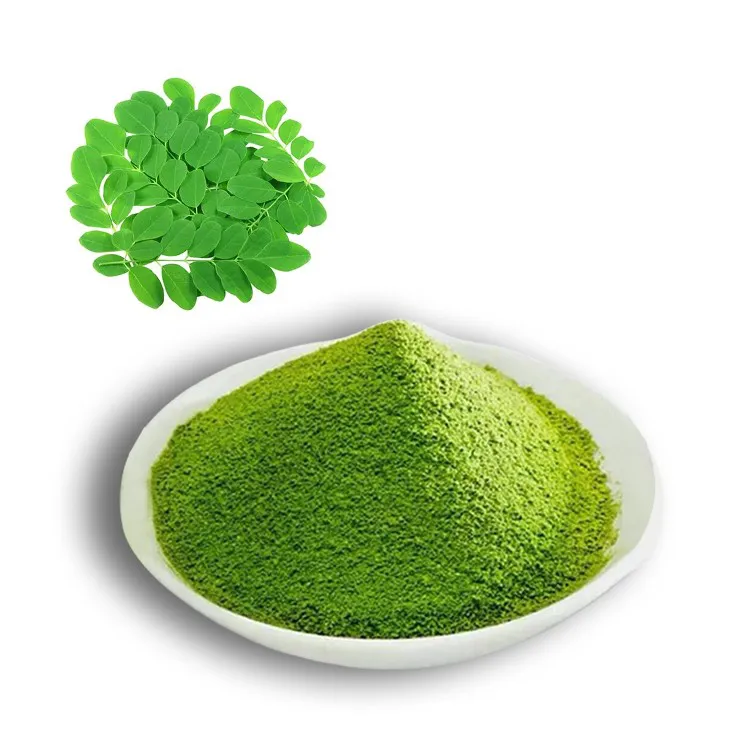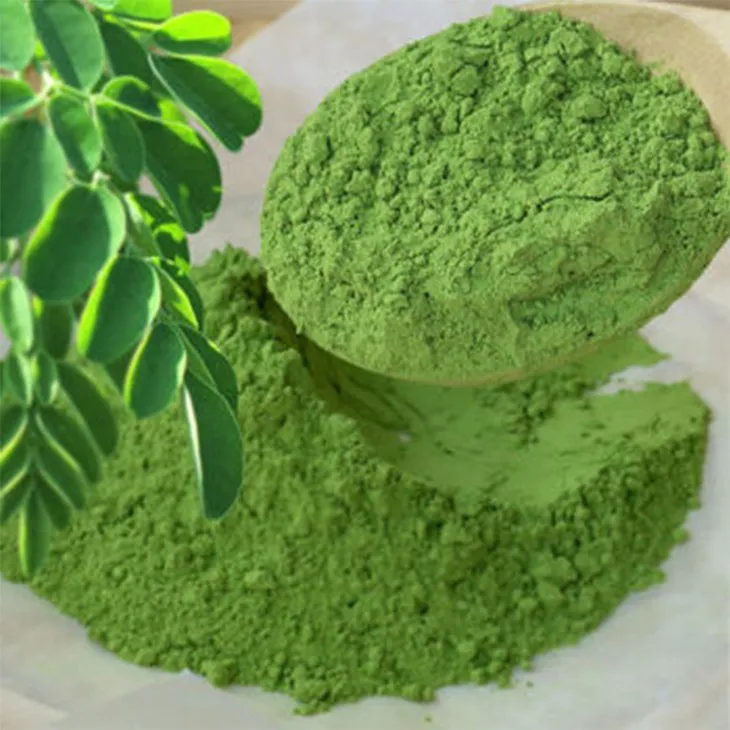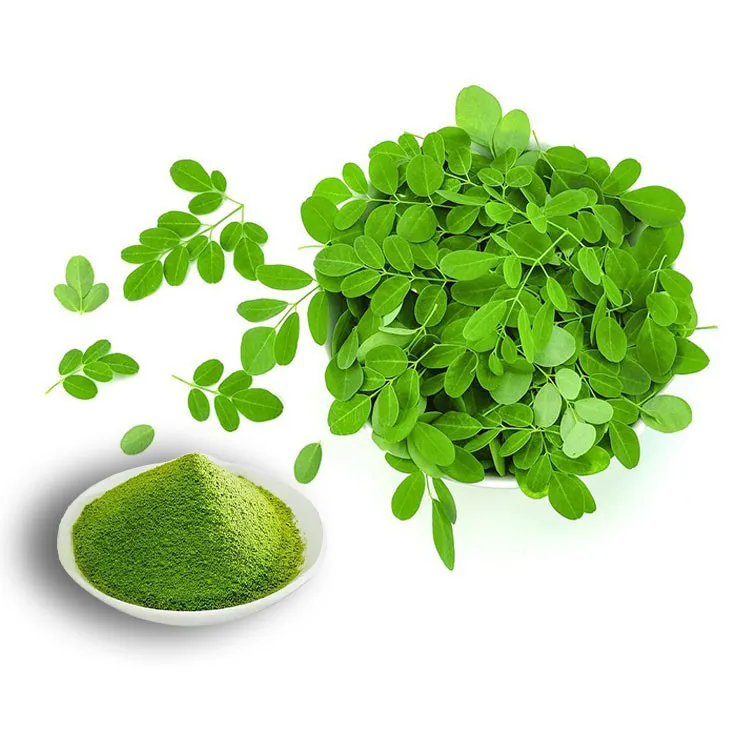- 0086-571-85302990
- sales@greenskybio.com
Moringa powder: China vs. the United States.
2024-11-28

1. Introduction
Moringa powder, derived from the Moringa oleifera tree, has gained significant attention in recent years due to its potential health benefits. This superfood is rich in vitamins, minerals, and antioxidants. China and the United States, two major players in the global market, have different approaches towards Moringa powder in terms of industrial development, quality control, and its position in the health and food industries. This article aims to provide an in - depth comparison of these aspects.

2. Industrial Development
2.1 China
In China, the Moringa powder industry is still in a relatively nascent stage but has been showing promising growth. Moringa cultivation has been expanding in certain regions with suitable climates, such as Yunnan and Guangxi. Chinese farmers are gradually learning about the optimal cultivation techniques for Moringa trees, including proper irrigation, fertilization, and pest control.
China has a large - scale agricultural infrastructure that can potentially be harnessed for the large - scale production of Moringa powder. However, at present, most of the production is on a smaller - to - medium - scale, with many small - scale farmers and a few emerging medium - sized enterprises involved. These enterprises are mainly focused on domestic sales initially, but there are also some attempts to enter the international market.
2.2 United States
In the United States, the Moringa powder industry has a different development pattern. The country has a well - established agricultural research system, which has been applied to Moringa cultivation. The United States is more likely to use advanced agricultural technologies such as hydroponics and precision farming in Moringa production.
The industry in the US is also more market - driven. There are some large - scale commercial farms dedicated to Moringa cultivation for powder production. These farms often have strong marketing strategies and are more focused on the high - end and niche markets, both domestically and internationally. They target health - conscious consumers who are willing to pay a premium for high - quality Moringa powder.

3. Quality Control
3.1 China
China has been making efforts in quality control for Moringa powder. The Chinese government has set certain standards for agricultural products, which also apply to Moringa powder to some extent. For example, regulations regarding pesticide residues, heavy metal content, and microbial limits are in place.
However, due to the relatively scattered nature of production among small - scale farmers, ensuring consistent quality can be a challenge. Some small - scale producers may not have the resources or knowledge to fully comply with all quality control requirements. To address this, there are emerging initiatives to provide training and support to farmers to improve quality control at the source.
3.2 United States
In the United States, quality control for Moringa powder is relatively strict. The Food and Drug Administration (FDA) has regulations governing food products, and Moringa powder falls under these regulations. Producers are required to meet strict standards in terms of ingredient sourcing, processing, and packaging.
Large - scale farms and manufacturers in the US often have in - house quality control laboratories. They conduct regular tests on Moringa powder for various parameters such as nutritional content, purity, and safety. This ensures that the products meet the high - quality expectations of consumers and can be competitively sold in the global market.

4. Place in the Health and Food Industries
4.1 China
In China, Moringa powder is gradually being recognized in the health and food industries. In the health industry, it is starting to be used as an ingredient in some dietary supplements. Chinese consumers are becoming more health - conscious, and Moringa powder's potential health benefits, such as its ability to boost immunity and provide essential nutrients, are being promoted.
In the food industry, Moringa powder has the potential to be used in a variety of products. For example, it can be added to baked goods, smoothies, and energy bars. However, currently, its usage is not as widespread as in some other countries. There is still a need for more product innovation and consumer education to fully integrate Moringa powder into the Chinese food market.
4.2 United States
In the United States, Moringa powder has a more prominent place in the health and food industries. In the health industry, it is a popular ingredient in dietary supplements, often marketed for its antioxidant and anti - inflammatory properties. There are numerous Moringa - based supplements available in the US market, targeting different health concerns.
In the food industry, Moringa powder has found its way into a variety of products. It is used in health - focused food products such as organic and gluten - free snacks, as well as in some high - end restaurants' special dishes. The US consumers' high demand for novel and healthy food ingredients has contributed to the wider adoption of Moringa powder in the food industry.
5. Conclusion
In conclusion, China and the United States have different approaches to Moringa powder in terms of industrial development, quality control, and its place in the health and food industries. China has the potential for large - scale production with its agricultural infrastructure, but needs to overcome challenges in quality control and market expansion. The United States, with its advanced technology and strict quality control, has a more developed market for Moringa powder, especially in the high - end and niche segments. Both countries can learn from each other's experiences. China can adopt some of the US's quality control and marketing strategies, while the US can look at China's potential for large - scale production and cost - effective cultivation methods. As the global demand for healthy and sustainable food products continues to grow, Moringa powder is likely to play an increasingly important role in both countries' health and food industries.
FAQ:
Question 1: How does the industrial development of Moringa powder differ between China and the United States?
In China, the Moringa powder industry may be influenced by traditional herbal medicine concepts. There is a growing trend in cultivating Moringa plants on a large scale in suitable regions, with an emphasis on both domestic consumption and export. The industry often integrates with agricultural development policies to promote rural economic growth. In the United States, the industrial development of Moringa powder is more market - driven. It focuses on meeting the demands of the health - conscious consumer market, with significant investment in research and development for new products, and also has a well - developed marketing and distribution system.
Question 2: What are the key differences in quality control of Moringa powder in China and the United States?
In China, quality control of Moringa powder is likely to follow national and international food safety and quality standards. There are strict regulations on pesticide residues, heavy metal content, and microbial limits during cultivation, processing, and packaging. Additionally, traditional quality inspection methods may be combined with modern techniques. In the United States, the Food and Drug Administration (FDA) sets certain standards for Moringa powder. The quality control focuses on aspects such as ingredient purity, accurate labeling, and compliance with Good Manufacturing Practice (GMP) to ensure the safety and quality of products in the highly competitive market.
Question 3: How is Moringa powder positioned in the health industry in China and the United States?
In China, Moringa powder is often seen as a natural health supplement with potential benefits similar to traditional herbal remedies. It is promoted for its nutritional value, such as being rich in vitamins and minerals, and is sometimes used in traditional Chinese medicine - inspired health products. In the United States, Moringa powder is highly regarded in the health and wellness industry. It is marketed as a superfood with various health claims, including antioxidant properties, potential for improving digestion, and enhancing overall well - being. It is often included in dietary supplements and functional foods.
Question 4: Are there differences in the food applications of Moringa powder in China and the United States?
In China, Moringa powder may be used in some traditional food preparations, especially in regions where Moringa is cultivated. It can be added to certain soups, teas, or used in the production of health - promoting snacks. In the United States, Moringa powder is more widely used in the production of health bars, smoothies, and as an ingredient in vegan and vegetarian products to enhance their nutritional profile.
Question 5: How do consumer attitudes towards Moringa powder vary in China and the United States?
In China, consumers may be more cautious and rely on traditional knowledge and official certifications when considering Moringa powder. They may be influenced by the reputation of the brand and the origin of the product. In the United States, consumers are generally more receptive to new health trends. They are often attracted by the marketing claims of Moringa powder's health benefits and are more likely to try new products containing it.
Related literature
- The Industrial Development of Moringa in China: Current Situation and Prospects"
- "Quality Control Standards for Herbal Supplements in the United States"
- "Moringa Powder in the Global Health Market: A Comparative Analysis"
- "Food Applications of Moringa: A Cross - cultural Perspective"
- "Consumer Perception of Superfoods: A China - US Comparison"
- ▶ Hesperidin
- ▶ Citrus Bioflavonoids
- ▶ Plant Extract
- ▶ lycopene
- ▶ Diosmin
- ▶ Grape seed extract
- ▶ Sea buckthorn Juice Powder
- ▶ Fruit Juice Powder
- ▶ Hops Extract
- ▶ Artichoke Extract
- ▶ Mushroom extract
- ▶ Astaxanthin
- ▶ Green Tea Extract
- ▶ Curcumin
- ▶ Horse Chestnut Extract
- ▶ Other Product
- ▶ Boswellia Serrata Extract
- ▶ Resveratrol
- ▶ Marigold Extract
- ▶ Grape Leaf Extract
- ▶ New Product
- ▶ Aminolevulinic acid
- ▶ Cranberry Extract
- ▶ Red Yeast Rice
- ▶ Red Wine Extract
-
Centella Asiatica Extract
2024-11-28
-
Green coffee bean Extract
2024-11-28
-
Lavender Extract
2024-11-28
-
Tormentil Extract
2024-11-28
-
Feverfew Extract
2024-11-28
-
Beetroot Powder
2024-11-28
-
Polygonum multiflorum extract
2024-11-28
-
Artichoke Extract
2024-11-28
-
Coix Seed Extract
2024-11-28
-
Red Wine Extract
2024-11-28





















